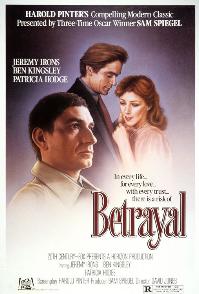The Betrayal Harold Pinter Pdf Converter
Microeconomics Bernheim Whinston 2008 Edition Hotel. Internal Links: External Links: Other Items: Harold Pinter's work is represented by - and applications for all performances and uses of Harold Pinter's work (including amateur and professional stage performances, radio broadcasts, television transmissions and readings and use of extracts) need to be addressed to them in the first instance and in advance of finalizing your plans. Judy Daish Associates will then contact the Estate of Harold Pinter (Lady Antonia Fraser Pinter) if appropriate.


Harold Pinter: The Birthday Party 'Lift your glasses' GOLDBERG: Lift your glasses, ladies and gentlemen. We ˇll drink a toast. MEG: Lulu isn ˇt here. The Official Harold Pinter. Complicity in their mutual betrayal. HAUNTING VISION By now, Pinter is like a fortunate composer who. To plays Main Page.
Download as DOC, PDF. Documents Similar To Harold Pinter Plays. Skip carousel. Free Download The Game Farkle Rules Programs Like Limewire. Pinter, Harold - Two Plays & a Film Script (Grove, 1967). Download as DOC, PDF. Documents Similar To Harold Pinter Plays. Skip carousel. Pinter, Harold - Two Plays & a Film Script (Grove, 1967).
The Estate should not be contacted directly for permissions. Please do not assume that a licence or permission will be forthcoming as there are sometimes conflicts between permission requests. © Harold Pinter 2000 - 2012 All Rights Reserved .
Poster for the 1998 production directed by Trevor Nunn Written by Characters Emma, Jerry, Robert, Waiter Date premiered 15 November 1978 Place premiered at the, London Original language English Subject extramarital Genre Drama Setting London and Betrayal is a play written by in 1978. Critically regarded as one of the English playwright's major, it features his characteristically economical dialogue, characters' hidden emotions and veiled motivations, and their self-absorbed competitive one-upmanship, face-saving, dishonesty, and (self-)deceptions. Download Free Before You Accuse Me Unplugged Tab Pdf Printer.
Inspired by Pinter's clandestine extramarital affair with presenter, which spanned seven years, from 1962 to 1969, the plot of Betrayal integrates different permutations of betrayal relating to a seven-year affair involving a married couple, Emma and Robert, and Robert's 'close friend' Jerry, who is also married, to a woman named Judith. For five years Jerry and Emma carry on their affair without Robert's knowledge, both cuckolding Robert and betraying Judith, until Emma, without telling Jerry she has done so, admits her infidelity to Robert (in effect, betraying Jerry), although she continues their affair. In 1977, four years after exposing the affair (in 1973) and two years after their subsequent break up (in 1975), Emma meets Jerry to tell him that her marriage to Robert is over. She then lies to Jerry in telling him that, 'last night', she had to reveal the truth to Robert and that he now knows of the affair. The truth however, is that Robert has known about the affair for the past four years.
Pinter's particular usage of in structuring the plot is innovative: the first scene takes place after the affair has ended, in 1977; the final scene ends when the affair begins, in 1968; and, in between 1977 and 1968, scenes in two pivotal years (1977 and 1973) move forward chronologically. As observes, in his review of the 1983, based on Pinter's own screenplay, 'The 'Betrayal' structure strips away all artifice. In this view, the play shows, heartlessly, that the very capacity for love itself is sometimes based on betraying not only other loved ones, but even ourselves.'
Still, drawing on the frequently commented influence of Proust's 'In Search of Lost Time' and Pinter's work on the 1977 'The Proust Screenplay' on the 1978 'Betrayal,' more emotionally complex interpretations are possible based on a stress on dual motions, one forward in calendar time toward disillusion and one backward toward the redemptive recovery of time, in each work. Main article: Betrayal was inspired by Pinter's seven-year affair with television presenter, who was married to the producer and director, while Pinter was married to actress. The affair was known in some circles; when Betrayal premiered in 1978, (father of ), who was in the audience, commented that Emma appeared to be based on Joan Bakewell; but the affair only became public knowledge after it was confirmed by Pinter in Michael Billington's 1996 authorised biography, and further confirmed in Joan Bakewell's later memoir The Centre of the Bed. Pinter wrote the play while engaged in another long-running affair, this time with, which became a marriage in 1980 after he divorced Merchant. However, Pinter explained to Billington that although he wrote the play while 'otherwise engaged' with Fraser, the details were based on his relationship with Bakewell. Cultural allusions [ ] ' (1997), episode 8 of the 9th (final) season of the Television series (Sony Pictures), alludes overtly to Pinter's play and film Betrayal, which appears to have inspired it.